New Therapeutic Strategy for Toxic Proteinopathies
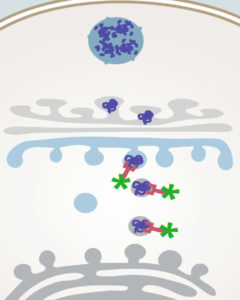 A small molecule discovered by researchers at Brigham and Women’s Hospital may hold promise for treating mucin-1 kidney disease (MKD) as well as other toxic proteinopathies of the brain, eye, lungs and liver. These diseases are driven by genetic mutations that result in misfolded, “toxic” proteins that in turn become trapped and accumulated in cells.
A small molecule discovered by researchers at Brigham and Women’s Hospital may hold promise for treating mucin-1 kidney disease (MKD) as well as other toxic proteinopathies of the brain, eye, lungs and liver. These diseases are driven by genetic mutations that result in misfolded, “toxic” proteins that in turn become trapped and accumulated in cells.
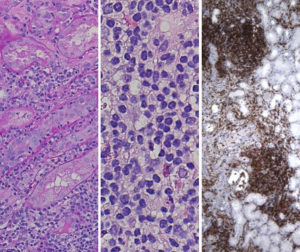
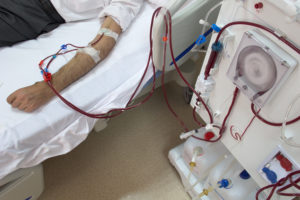
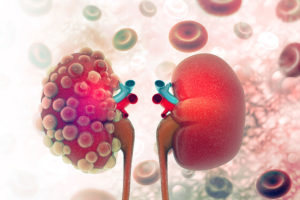
 It can be challenging to assess the effects of dietary changes on a disease, especially when those changes involve eliminating common, often beloved foods from a child’s diet. However,
It can be challenging to assess the effects of dietary changes on a disease, especially when those changes involve eliminating common, often beloved foods from a child’s diet. However, 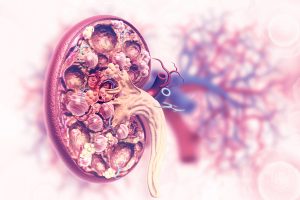 Study identifies key factor leading to cell cycle arrest and a cellular structure that is key for kidney fibrosis progression.
Study identifies key factor leading to cell cycle arrest and a cellular structure that is key for kidney fibrosis progression. 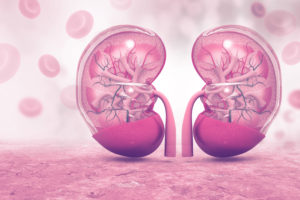 In the 1960s, Brigham and Women’s Hospital pioneered the development and commercialization of dialysis. Once again, the Brigham is on the forefront of renal replacement therapy (RRT) through a new project spearheaded by the Kidney Health Initiative (KHI), a public-private partnership between the
In the 1960s, Brigham and Women’s Hospital pioneered the development and commercialization of dialysis. Once again, the Brigham is on the forefront of renal replacement therapy (RRT) through a new project spearheaded by the Kidney Health Initiative (KHI), a public-private partnership between the  End-stage kidney disease patients on dialysis need to continue dialysis to stay alive. To reduce the pain and common worries in their final phase of life, they also need access to hospice care. Unfortunately, Medicare patients with end-stage kidney disease often can’t have both.
End-stage kidney disease patients on dialysis need to continue dialysis to stay alive. To reduce the pain and common worries in their final phase of life, they also need access to hospice care. Unfortunately, Medicare patients with end-stage kidney disease often can’t have both. In the search of a practical screening method for early-stage renal cell cancer (RCC), researchers at Brigham and Women’s Hospital have been studying the potential of kidney injury molecule-1 (KIM-1). Their latest research was
In the search of a practical screening method for early-stage renal cell cancer (RCC), researchers at Brigham and Women’s Hospital have been studying the potential of kidney injury molecule-1 (KIM-1). Their latest research was  A new electronic health record (EHR) tool could help physicians quickly and accurately flag patients that should be referred to a nephrologist based on indicators that may signal the risk of kidney failure. Designed by
A new electronic health record (EHR) tool could help physicians quickly and accurately flag patients that should be referred to a nephrologist based on indicators that may signal the risk of kidney failure. Designed by